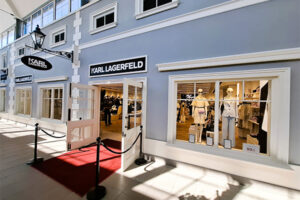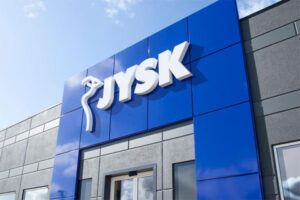In early March, Union Investment secured a majority stake in the “Palladium” shopping center in Prague for the open-ended property fund UniImmo: Deutschland by purchasing shares in a property company. With a gross floor area of 115,000 sq m, of which 41,000 sq m are lettable retail space and 18,000 sq m are lettable office space, the almost fully let “Palladium,” which was completed in October 2007, is the largest shopping center in the retail district of downtown Prague. The basis of the transaction is a real estate value of around €570 million. “Palladium” is located in the center of downtown at Republic Square and is equipped with 860 parking spaces. Its more than 200 tenants constitute a broadly diverse mix. The anchor tenants include Marks & Spencer, H&M, C&A, Samsung, and Esprit, with Böhringer and CBRE occupying offices.
ACROSS: Union Investment acquired a majority stake in the Palladium shopping center in Prague earlier this year. Could you explain the background of the deal and why the Palladium is a good fit for your portfolio?
Henrike Waldburg: We aim further to increase the foreign share in our retail segment. As one of the top centers in Prague, the Palladium fits perfectly into this strategy. The Palladium is a unique retail and service center of national importance that emerged in Prague’s historic city center and was been carefully integrated into the surrounding listed buildings dating back to the Habsburg monarchy. The center has become an important trading magnet at the northeastern end of the pedestrian zone since its opening in 2007, with annual visitor numbers of more than 15 million people. It also boasts a broadly diversified tenant and branch mix with more than 200 tenants. In addition, the Palladium has been actively managed by our partner Hannover Leasing since opening. The company will remain on board as an asset manager.
ACROSS: The Czech Republic and Prague are small, fiercely competitive markets in the retail sector. Doesn’t the transaction therefore involve an element of risk?
Waldburg: Compared to other economies, the Czech Republic is certainly a small market, but economically, and especially with regard to tourism, Prague plays in the same league as other European cities. We therefore assume that the liquidity of such “trophy” assets will remain high at all times. Quality has its price – today more than ever, to be sure. The palladium, however, is a center that is well equipped to meet the changing environment of retailing – keyword: e-commerce – and it also brings the necessary dominance and strength in the Prague market. We expect a long-term positive cash flow development from the asset and a high level of yield stability.
ACROSS: How do you assess the current financing/refinancing environment for such acquisitions as compared to five years ago?
Waldburg: Both equity and debt are widely available today. Banks are extraordinarily willing to offer finance on attractive terms. That would have been unthinkable five years ago.
ACROSS: Do you think we will see more “mega deals” in European shopping centers this year?
Waldburg: We can only expect individual transactions concerning dominant, renowned shopping centers if the owner is not a REITS, but an institutional investor such as a fund at the end of its term. I assume that we will see a number of portfolio deals this year.
ACROSS: 40% of Union Investment’s retail real estate assets are currently located outside Germany. Yet there is great demand for German retail assets. Which European countries or regions would be interesting for you for further purchases? What role does Germany play in your long-term asset strategy?
Waldburg: Historically, our retail portfolio has grown in Germany and Germany remains a strong market for us. About 10 years ago, we started to push ahead with the European diversification of the portfolio. We continue to pursue this path. There is also a somewhat more global orientation in the retail segment. We would like to gain a foothold in North America in the short to medium term.
ACROSS: What advantages do retail real estate investments have over investments in office buildings?
Waldburg: The retail segment has delivered consistently stable performance contributions in the past and partially outperformed office investments.
ACROSS: If you had unlimited funds and the freedom to choose: Which shopping center would you most like to add to your portfolio?
Waldburg: Good question. We of course have a “wish list” of centers that would fit well into our already €7 billion retail portfolio. But I think I’d better keep that to myself – the prices are already high enough!
About Union Investment
Union Investment provides customized real estate solutions to meet the requirements of private and institutional asset allocation. Thanks to an international property portfolio diversified across 24 national markets, the company is able to leverage the opportunities that arise from global market cycles. Union Investment has assets under management of some €27 billion in 20 real estate funds. Private investors account for some €21 billion across three retail funds. Union Investment’s institutional business currently comprises two institutional funds and 15 special funds with a total volume of some €6 billion.





